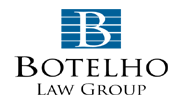Many people these days are facing serious tax debt either from the IRS or the Massachusetts Department of Revenue or DOR. These people really have nowhere to turn, because as they say you “can’t fight city hall”. These government agencies have the ability to take money directly out of your checking account, savings account or even out of your paycheck to pay back the tax obligations you have. But many people don’t realize that with chapter 7 bankruptcy or chapter 13 bankruptcy, you have the ability to eliminate some or all of your tax obligations to the IRS or to the Massachusetts DOR, depending on your particular set of circumstances.
The two main factors that you must overcome in order to even attempt to remove tax debt obligations are as follows. 1st the tax debt needs to be at least three years old, meaning it’s from a tax return that should of been filed over three years ago. 2nd restriction that must be addressed is, that the filing of that year’s tax returns must have occurred over two years ago. This means if you have a tax debt that over five years old, but you only file for that year’s tax return one year ago, there is absolutely nothing bankruptcy can do to help your situation. But if the tax debt is over three years old and you filed that tax return over two years ago, then some or all of your tax obligation to the IRS or to the DOR can be discharged in chapter 7 or chapter 13 bankruptcy.
Most people have no idea that you can actually eliminate some or all of your internal revenue service, IRS or Department of revenue, D.O. R. income tax debt through the use of chapter 7 bankruptcy or chapter 13 bankruptcy. The funny thing is only a couple attorneys or lawyers even realized this can be done and even fewer understand how it can be done. Furthermore through the use of chapter 13 bankruptcy for newer debt that do not fall within the guidelines I have set forth in this blog, you can use chapter 13 bankruptcy to establish a repayment plan for the tax debt that is too new to be discharged to bankruptcy and then use that bankruptcy to discharge some or all of the tax obligations that are old enough to fit into the criteria I have set forth in this blog. So not only can you stop wage garnishment, stop the IRS or DOR taking money out of your checking accounts, you can also establish a repayment plan for debts that are too new to be discharged in chapter 13 bankruptcy.
Remember less than 15% of bankruptcy attorneys know how to file chapter 13 bankruptcy and even less than 10% of bankruptcy attorneys know how to discharge taxes within chapter 7 or chapter 13 bankruptcy. Always seek the advice of a very knowledgeable bankruptcy attorney all lawyer when attempting what I’ve described in this blog.
Joseph F. Botelho, Esq.
BOTELHO LAW GROUP
Attorneys At Law
901 Eastern Ave.
Unit 2
Fall River, MA 02723
Office: 888-269-0688
Email: jbotelho@botelholawgroup.com
https://www.botelholawgroup.com/
#bankruptcy, #lawyer, #FallRiver, #Chapter7, #chapter13, #debt, #foreclosure, #attorney, #lawsuit, #court, #eviction, #student, #loans, #education, #IRS, #taxes, #FallRiver, #NewBedford, #Taunton, #Attleboro, #Providence, #Pawtucket, #Massachusetts, #RhodeIsland
